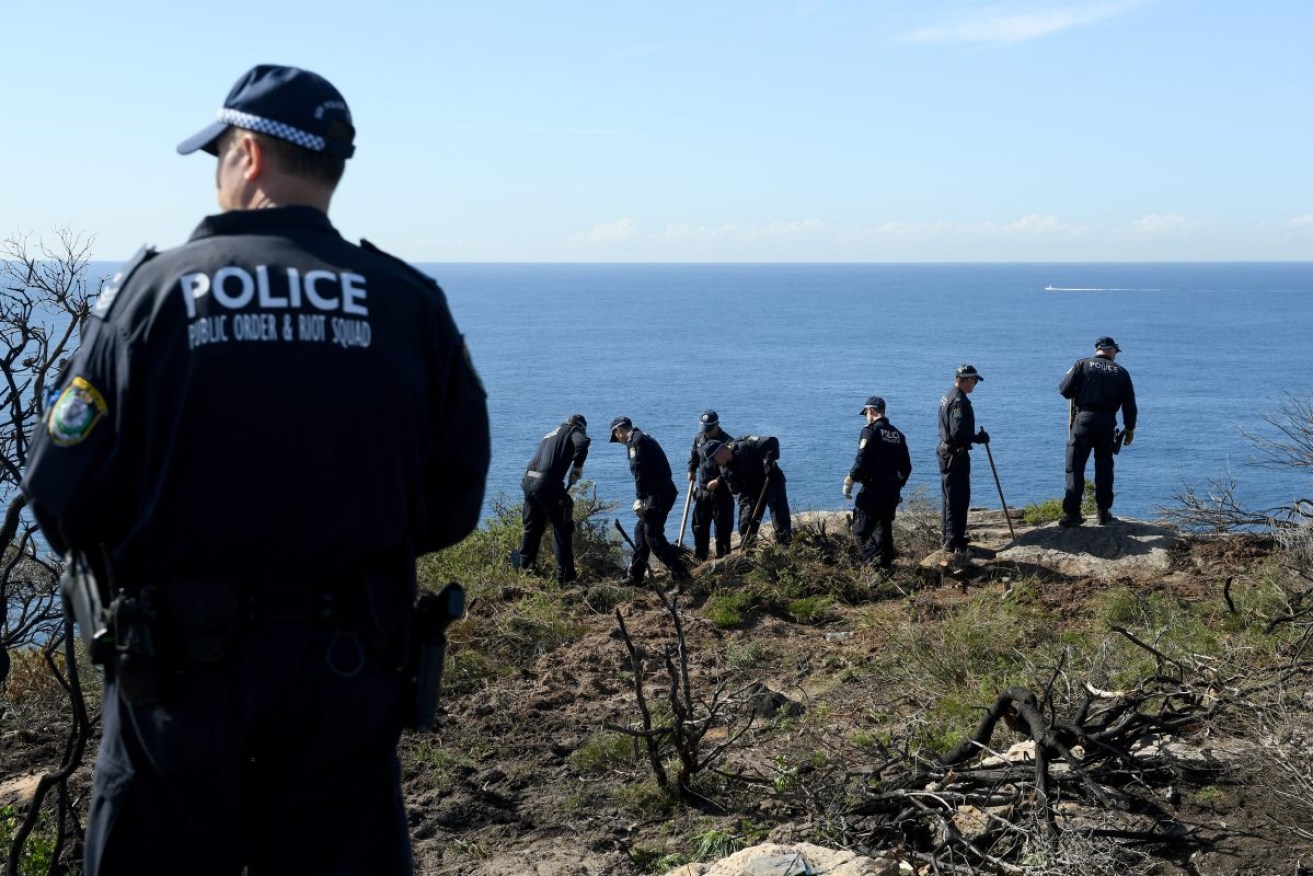Police used ‘psychological’ tactics, hate crime inquiry told
Police would regularly harass users of Sydney’s gay beats in the late ’80s and early ’90s, including using “psychological” tactics, a hate crime inquiry has been told.

Police search a Sydney cliff after a cold case arrest for a suspected gay-hate murder. Photo: AAP/Dan Himbrechts
Many gay men were arrested in an attempt to shut down the beats, creating fear and mistrust among users who already faced violence and risk of disease at the height of the AIDS epidemic.
On one occasion, police blasted the song YMCA by the Village People over a loudspeaker near a beat they were monitoring, a former sexual health outreach worker said.
“I guess it was a bit their sense of humour or something quirky about the police at the time,” Ulo Klemmer said.
Klemmer said the harassment by police made his efforts as an outreach officer to share vital information about safe sex and preventing the spread of HIV much more difficult.
“The police action was counteractive to what we were doing. They didn’t stop, knowing that,” he said.
Another tactic used by police was to take the information of men at gay beats with the implicit threat of making that public.
Klemmer said officers would approach people in cars parked near beats to take details like name and address and tell the person they would “be in touch”.
“Whether or not they did get in touch it was like a psychological bit of harassment,” he told the inquiry.
“It’s like ‘why would they do that?’ That person was doing absolutely nothing.”
He added that in his time working as an outreach officer from 1989 to 1994, during which he would regularly visit beats to provide information, he couldn’t recall witnessing anybody publicly having sex.
“I think a lot of what goes on in beats is actually just in the minds of people like the press, and the police and the public,” he told the inquiry.
“It wasn’t just for having sex. Some people went there to meet people without the sex bit and socialise.
“If anything does happen it’s more than likely very privately done.”
Interactions with the police were not all negative for Klemmer who said he had some good experiences with LGBTQ liaison officers within the NSW Police.
Earlier this week the NSW Special Commission of Inquiry into LGBTQI hate crimes was told of police showing indifference to gay hate crimes.
One man attacked by a gang with PVC pipes said he felt police were more interested in what he had been doing at a park late at night.
Another man bloodied when ambushed was told by a nearby officer that he was busy and should report a crime to the local station.
The special commission is tasked with investigating historical hate crimes against the queer community.
It’s particularly focused on a wave of gay-hate homicides and other crimes in Sydney during the AIDS epidemic of the 1980s.
The former co-convenor of the NSW Gay and Lesbian Rights Lobby, Gary Cox, told the inquiry on Wednesday he believed the HIV/AIDS epidemic and “the hysteria around it” brought on a rising tide of violent hate attacks in the late 1980s.
“I sometimes characterise it as a stage (with) the embedded discrimination, hostility, prejudice, stereotypes towards gays and lesbians,” he said.
“And then there was a backdrop of HIV/AIDS with the hysteria, ignorance and blame around that.
“It was the perfect storm we were seeing around 1988.”
The police response will be the focus of hearings in December.
-AAP




